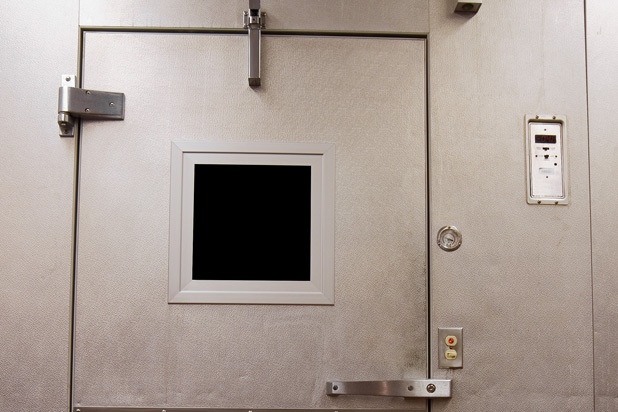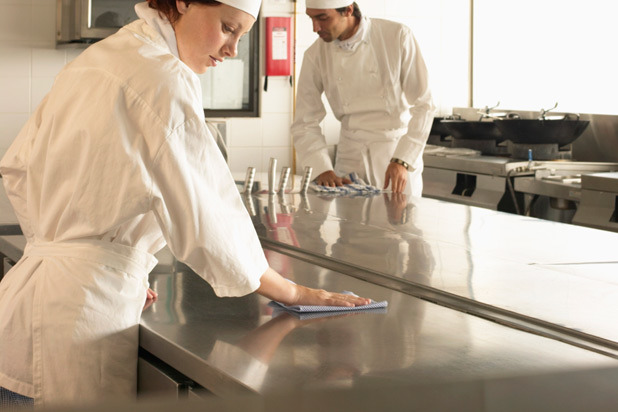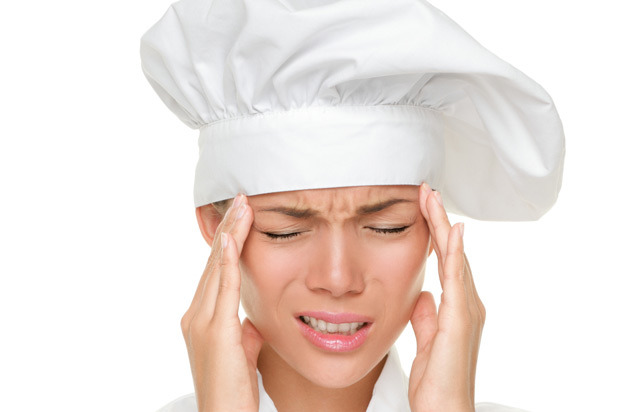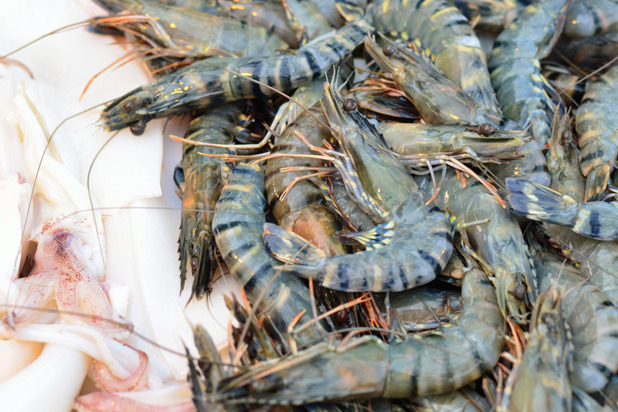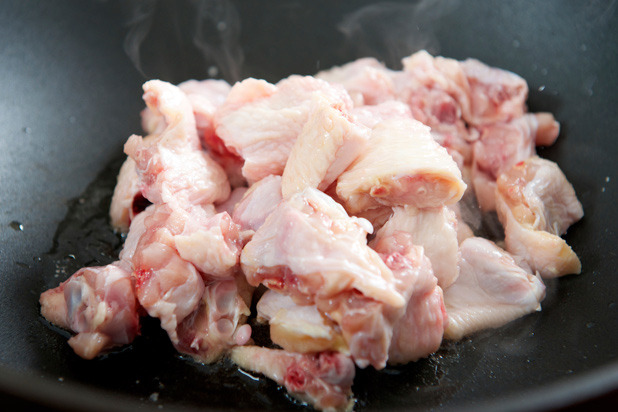7 Ways That A Restaurant Can Make You Sick Slideshow
Every time raw meat touches a surface, that surface, and everything that touched the meat (including knives and hands) need to be thoroughly sanitized. Cross-contamination can kill people, so in New York City, the Department of Health makes sure that food is kept clean "during storage, preparation, transportation, display and service." Food can also be contaminated by improper handling; for example if it's dropped on the floor, or stirred with a dirty spoon.
Temperature
In New York City, all cold foods need to be held at 41 degrees tops, and smoked fish needs to be kept at 38 degrees, unless it's in the process of being cooked or plated. So for example, if boiling hot soup gets put directly into the fridge it can take hours and hours for it to reach the desired temperature, keeping it in the danger zone long enough for any dangerous bacteria to infect the whole batch. Hot food also needs to be kept hot long enough to keep danger at bay; this is a reason why buffets rarely pass muster.
Allergies
While they don't originate in a dirty kitchen, food allergies are one of the easiest ways to get sick at a restaurant. Kitchens aren't always forthcoming about every potential allergen in every dish, so always make sure to ask, even if you think you know what's in the dish. Peanut oil is used more frequently than people realize, for example, and seafood stock can turn up in some unexpected places.
Sanitation
While you won't always be able to sneak a peek into the kitchen of a restaurant to see how clean it is, you can get a pretty good idea by taking a look around the dining room. Is the floor dirty, with dirt piled up in the corners? Are the menus, tables, and salt and pepper shakers clean? Is anything sticky? If you have any doubts about a restaurant's cleanliness, your safest bet is to find somewhere else to dine. If they don't care about keeping the dining room clean, they certainly don't care about keeping the kitchen clean. Where there's food there's vermin, and what they leave behind can make someone very sick.
Sick Workers
You might be surprised at the amount of kitchen workers who don't deny heading into the kitchen with a cold: one in 10, according to a recent Duke University study. Obviously, if the flu-infected person plating your salad sneezes into it, you're going to get sick. Those who are paid by the hour don't have the luxury of sick days, so you'll just have to keep your fingers crossed that the line cook washed their hands after blowing their nose or changed their gloves after sneezing into their hands. A sick worker recently caused an outbreak of the norovirus at Copenhagen's acclaimed Noma, so it's just about impossible to guarantee that even the highest-end restaurants don't have a sick cook in the kitchen.
Spoiled Food
Sometimes food sits around too long and begins to go bad, even if it's held at the proper temperature. The easiest way to tell if the food placed in front of you is as fresh as can be? Your nose. If you get milk with your coffee, give it a sniff first. If you ordered shellfish, especially raw shellfish, there should be nothing off-smelling about it. If you're eating your meal and it tastes or smells a little funny, send it back. Better safe than sorry.
Improper Cooking
Certain foods, like chicken, need to be completely cooked before they can be eaten. So, if you're served poultry that's still pink in the middle, let your waiter know.

